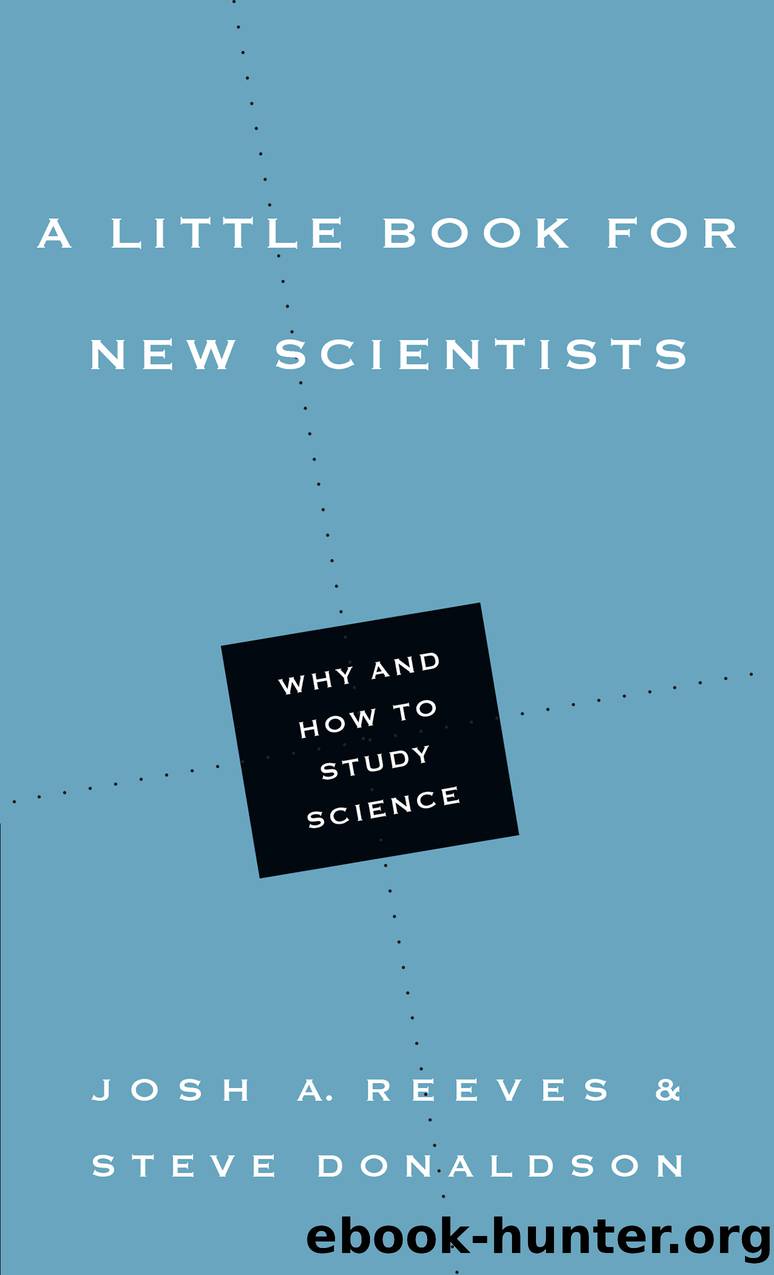A Little Book for New Scientists by Reeves Josh A.;Donaldson Steve; & Steve Donaldson

Author:Reeves, Josh A.;Donaldson, Steve; & Steve Donaldson [Reeves, Josh A.]
Language: eng
Format: epub
ISBN: 9780830893508
Publisher: InterVarsity Press
Published: 2016-09-09T00:00:00+00:00
ADVANTAGES OF INTELLECTUAL HUMILITY
As mentioned above, Christian scientists are under compulsion to be intellectually humble, not only about both their science and their theology but also about the conjunction of those areas. Letâs imagine for a moment that someoneâweâll call her Emmaâmanages to obtain the last word about God. What if Emma is right and everyone else is wrong? Well, hooray for her! This is the stuff of book and movie plots, and while she awaits the endorsements Emma can congratulate herself while reveling in her superiority and contemplating how everyone else could be so blind. Unfortunately for her, there is the small matter of how she is going to convince others that she is the enlightened one.15 Perhaps she can persuade some by her intellectual prowess or charisma (assuming she has either), but no oneâatheist or theistâwill be meaningfully changed simply by her assurances that she has the truth. In fact, we have ignored the crucial question of how Emma even knows she has the ultimate answers. Outside our imaginary scenario, it seems far more likely that Emma has but a piece of the truth about God, and probably an extraordinarily small piece at that. Humility is not a natural attribute of atheists or theists, but without it neither will see much reason to search and any truth that might be found will remain beyond their grasp if for no other reason than they are not reaching for it.16
In his fascinating account of increases in cosmological knowledge, Richard Panek describes the moment in time when it finally became apparent that âfor most of the history of the telescope, astronomers had been studying 1 percent of 2 percent of, at most, 10 percent of whatâs out there, and calling that the universe.â17 Surely the scientist who thinks deeply about his or her chosen field would echo Panekâs sentiments. In areas as diverse as epigenetics, mind-brain-consciousness, evolutionary learning, artificial intelligence and many others we seem to be only scratching the surface of plausible knowledge. But if God has the infinite attributes traditionally ascribed to him by Christians, a comparable shallowness must be true of our theological understanding. As the apostle Paul put it, âOh, the depth of the riches of the wisdom and knowledge of God! How unsearchable his judgments, and his paths beyond tracing out! âWho has known the mind of the Lord? Or who has been his counselor?ââ (Rom 11:33-34). To acknowledge that one might be wrong, and to admit it when one is wrong, is the gateway to greater discovery. Thus the route to deeper insightâbe it scientific, theological or the intersection of the twoâbegins with intellectual humility.18
Download
This site does not store any files on its server. We only index and link to content provided by other sites. Please contact the content providers to delete copyright contents if any and email us, we'll remove relevant links or contents immediately.
The 5 Love Languages: The Secret to Love That Lasts by Gary Chapman(8530)
The Space Between by Michelle L. Teichman(6098)
Assassin’s Fate by Robin Hobb(5254)
Wiseguy by Nicholas Pileggi(4601)
Everything Happens for a Reason by Kate Bowler(4076)
Gerald's Game by Stephen King(3928)
A Simplified Life by Emily Ley(3581)
The Power of Positive Thinking by Norman Vincent Peale(3462)
Pillow Thoughts by Courtney Peppernell(3416)
Resisting Happiness by Matthew Kelly(2893)
Girl, Wash Your Face by Rachel Hollis(2828)
Being Aware of Being Aware by Rupert Spira(2712)
Name Book, The: Over 10,000 Names--Their Meanings, Origins, and Spiritual Significance by Astoria Dorothy(2498)
Real Sex by Lauren F. Winner(2481)
More Language of Letting Go: 366 New Daily Meditations by Melody Beattie(2456)
The Holy Spirit by Billy Graham(2427)
Fast Facts on Defending Your Faith by John Ankerberg & John Weldon(2394)
Victory over the Darkness by Neil T. Anderson(2389)
The Secret Power of Speaking God's Word by Joyce Meyer(2258)
